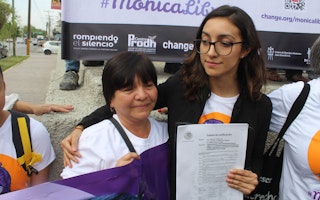In recent years there has been a great deal of legislative and grassroots activity focused on the issue of felony disenfranchisement in the United States. More than four million Americans are currently unable to vote due to laws in 48 states and the District of Columbia that disenfranchise varying categories of persons currently serving a felony sentence or in some states, persons who have completed their sentence.
Since 1996, 11 states have adopted changes to their felony disenfranchisement policies, with 8 states reducing restrictions and 3 adopting more restrictive policies. Cumulatively, these changes have resulted in a significant number of persons now becoming eligible to register to vote. A 2002 analysis from The Sentencing Project by academics Christopher Uggen and Jeff Manza estimated that in the five states with the most significant changes (Connecticut, Delaware, Maryland, New Mexico, and Texas), some 471,000 persons had gained access to the ballot box.
Overall, the strong direction of movement on disenfranchisement is toward expanding the right to vote. The three states that have restricted voting rights in recent years were atypical. In two cases (Massachusetts and Utah) they involved adopting prohibitions on prisoner voting. Prior to these actions, these states had been among just four nationally that permitted prisoners to vote. In the third state (Kansas) the restriction on probationer voting essentially remedied an inconsistency in state law.
The policy changes documented in this report have come about in many cases with bipartisan support and relatively little organized opposition. As such, they reflect a growing trend among Americans to consider voting as a fundamental right, as well as a recognition that there should be limits on the consequences of a criminal conviction.
As described in this report, the following states have adopted felony disenfranchisement changes since 1996:
- Connecticut: Restoration of voting rights to felons on probation
- Delaware: Permanent disenfranchisement replaced with 5-year waiting period for most offenses
- Kansas: Expansion of disenfranchisement to felons on probation
- Maryland: Repeal of lifetime ban for non-violent repeat offenders
- Massachusetts: Disenfranchisement of felons in prison
- Nevada: Automatic restoration for first-time non-violent felons; elimination of 5-year waiting period before eligibility for restoration of rights
- New Mexico: Repeal of lifetime ban
- Texas: Elimination of 2-year waiting period for restoration of rights
- Utah: Disenfranchisement of felons in prison
- Virginia: Streamlining of restoration process
- Wyoming: Restoration of rights for first-time non-violent felons
Read more
Homicide Reduction
Q&A: How One Colombian City Is Tackling Violent Crime

Palmira, Colombia, is one of the most violent cities in the world. But a prevention program focusing on youth has reduced crime significantly—and earned it an international peace prize. The city’s mayor on what’s working.
In Remembrance
Lani Guinier’s Overlooked Education Legacy

The late Lani Guinier thought deeply about the intersection between education and criminal justice. Her leadership at Open Society helped pave the way to colleges across the country offering higher education to the incarcerated.
WOMEN'S RIGHTS
Challenging Mexico’s Abusive Preventative Detention System

Mónica Esparza’s case is one of the most notorious cases of extreme gender violence carried out by Mexican authorities. What her story teaches about how to combat the country’s scourge of gender-based violence.
